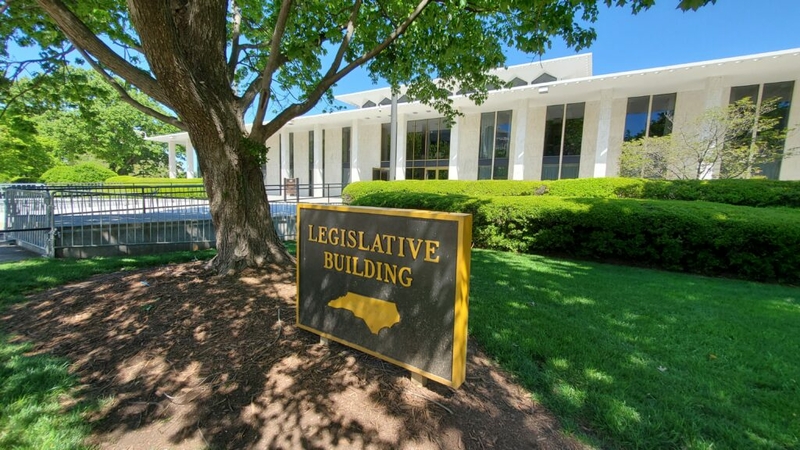HB2 shadow still looms large in NC, but how large?

Once again, North Carolina is looking down the barrel of a barrage of far-right legislation. Again unchecked by the counterweight of a gubernatorial veto (thanks to one legislator’s act of astounding deceit), Republicans are gleefully railroading extremist social legislation into law.
A top reason: some important changes that have overtaken our state’s politics in recent years.
Most voters’ political memories are famously short. But for those of us who do remember, the feelings today are reminiscent in some ways of 2016, and the days of the infamous “bathroom bill” — House Bill 2. “HB2” has become virtual shorthand for far-right overreach – incidents in which tiny groups of social conservative activists foist their personal hangups and fears on the general public and thereby inflict great harm.
In 2016, HB2’s passage wrought massive damage on our state’s economy. Conservative estimates of the economic damage — direct investment on which North Carolina lost out — range from $3.76 to almost $5 billion. Thousands of expected jobs vaporized as corporate expansions were paused or halted altogether in direct response. Thousands of others to which those expansions would have given rise indirectly were never created. Our state and its families suffered mightily.
In a logical world, the memory of the HB2 disaster would be enough to prevent any kind of present-day replay. But things are different today, and it’s unlikely radical right legislation will have the same effect – at least politically — that it once did.
First, it’s important to point out that North Carolina’s far right true believers did not then, and still do not today, consider HB2 an embarrassing spectacle, as most of us do. Rather, they see it as a major victory that was wrongfully surrendered by Republican political leaders who lacked a backbone. The ultimate repeal of HB2 weakened the shaky trust between hard-right social conservatives (who “lost”) and the big corporate community (who “won”).
But even more important are a pair of the changes that have overtaken our politics.
One is the “MAGA-fication” of the GOP, which has supercharged political polarization and convinced a small but vocal segment of Americans on the Right to give up on democracy itself. A language of punishment now permeates our politics. It is not just common, but increasingly fashionable, to make a show of singling out disfavored groups, and in the eyes of partisan opponents, to show them their place.
Second, and perhaps even more important, is that North Carolina’s legislature is very different. Take, for example, former longtime state Rep. Paul “Skip” Stam. Stam was House Majority Leader in 2016 and a Republican from Wake County. Those last four words alone would likely make Stam unelectable in 2023 — and if they didn’t, his co-sponsorship of HB2 certainly would.
Same with folks like former GOP lawmakers Nelson Dollar, Gary Pendleton, Chris Malone, and Marilyn Avila, none of whom (even with aggressive Republican gerrymandering) could be elected in Wake County anymore.
And it’s not just Wake. Former Mecklenburg County legislators Scott Stone, Bill Brawley, Bob Rucho and Dan Bishop are examples of the same phenomenon. Representatives John Bradford, Erin Pare and Tricia Cotham are very likely to soon join this list.
The GOP’s rapid extinction in North Carolina’s metros and suburbs has not only made its leaders gravitate to more extreme social politics, but it’s also made them less interested in the economic damage those politics cause.
Consider that between 2010 and 2020, fully half of all of North Carolina’s GDP growth accrued to just Wake and Mecklenburg counties. Add in Durham, Forsyth, Buncombe, Guilford, and New Hanover (all won by Joe Biden), and the total rises to two-thirds. The numbers would likely be even starker had it not been for the jobs destroyed by HB2 – most of which were very disproportionately destined for metro areas.
All of which begs the question: Do voters in Surry, Cleveland, or Carteret counties particularly care if jobs are lost in Mecklenburg or Guilford? Their elected representatives don’t seem to. While those lawmakers may have once been counterbalanced by metro county Republicans, that balance no longer exists. And so, it’s full speed ahead for the destructive culture wars express.
This change in our politics, both here in North Carolina and in America as a whole, since 2016 means that Republican lawmakers will be far less moved today by the inevitable popular backlash to social extremism. Gerrymandering has worsened the polarization of our politics exactly as everyone has always said it would, and that will now have tangible economic consequences for every North Carolinian. It will require enormous investments of good faith for some small number of voters to make different choices on their ballots to break this toxic cycle. Will they?








